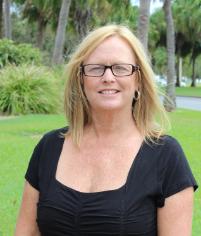Bringing the economic boom to regional women
Published on 21 June, 2012
Gender equality is an ever-present issue in many arenas, but for CQUniversity's Dr Roslyn Cameron its importance is also highly economical.
Gladstone-based Dr Cameron is part of a team spearheading a research project into how manufacturing, construction and resource industries can improve their attraction, training and retention of female workers, primarily in the Gladstone region.
The project draws numerous parallels with CQUniversity's bid to become Queensland's first dual-sector university, and will engage Gladstone's key industry and community groups.

CQUniversity's Dr Roslyn Cameron
Dr Cameron, a senior lecturer in Human Resources Management is joined by fellow CQUniversity academics Associate Professor Bobby Harreveld from the School of Education and Dr Prue Howard from the School of Engineering, providing a strong disciplinary mix for investigating what could prove to be a major factor in alleviating regional and national skill shortages.
"Increasing the participation of women is not only necessary, but is likely to further support economic development. In pure human capital terms their skills are an essential resource in maintaining economic momentum" Dr Cameron said.
According to Queensland's Department of Education females are six times more likely to study in the fields of commerce and education, and more than twice as likely to study in the fields of society and culture and natural and physical sciences.
Additionally, females were more likely than males to be working in part-time jobs (54.4 percent compared to 30.6 percent) 6 months after completing year 12 in the Fitzroy-Central West region in 2011.
Dr Cameron believes that females are going after high-skill careers, but the key challenge is attracting them to the pivotal resource, construction and manufacturing industries, where males are eight times more likely to pursue careers.
"When you look at the employment opportunities on offer in the region and put that beside the imbalance of gender in technical- and trade-oriented positions, there's something to be said for the lack of female represenation" she said.
"The mining industry is making a significant investment into the attraction and retention of women, but the manufacturing, construction and energy industries aren't doing as well. By working with local industry stakeholders we want to devise new strategies for increasing women's participation in technical and trade related careers"
"Attracting women into technical and trade related educational pathways is paramount to economic and regional sustainability within the region" Dr Cameron said.
Compelling evidence from Queensland's Department of Education indicates that improving gender balance improves economic productivity, reduces poverty and ensures sustainable growth.

